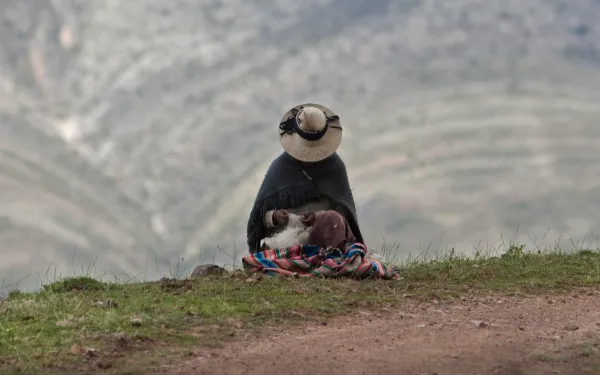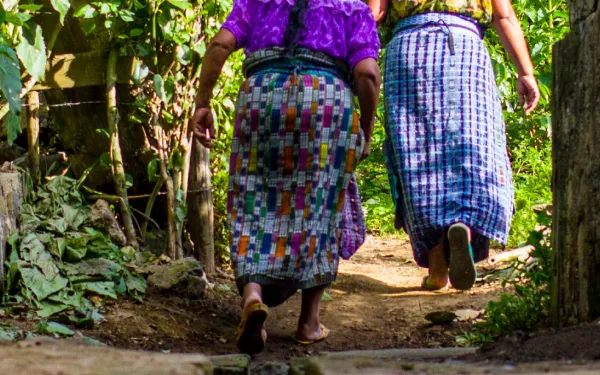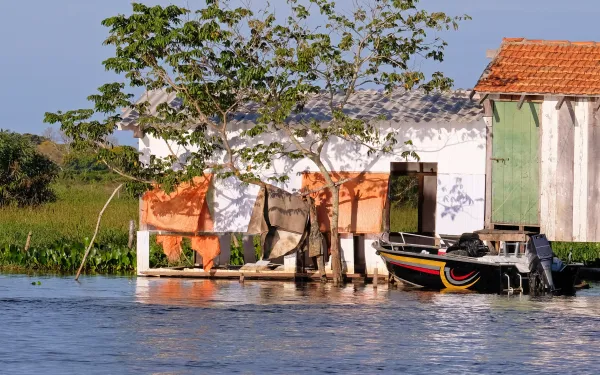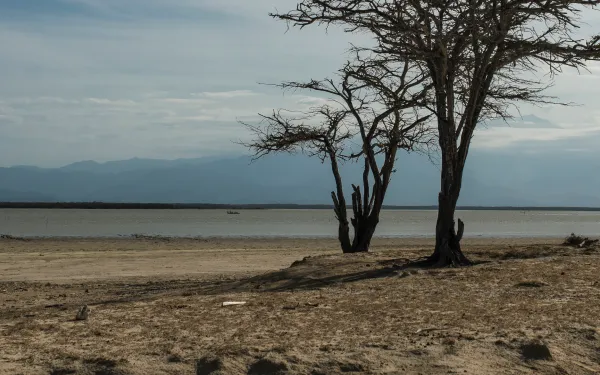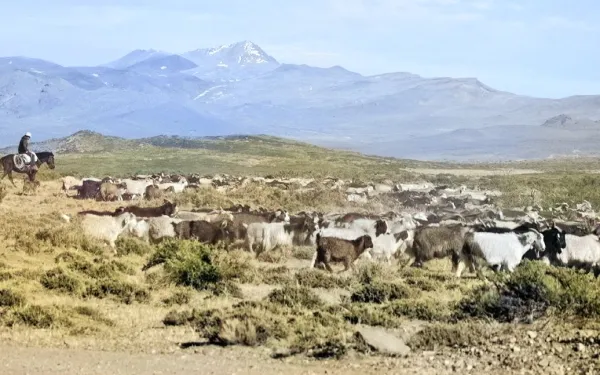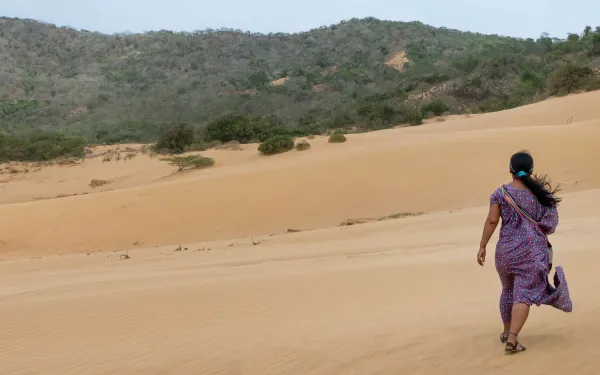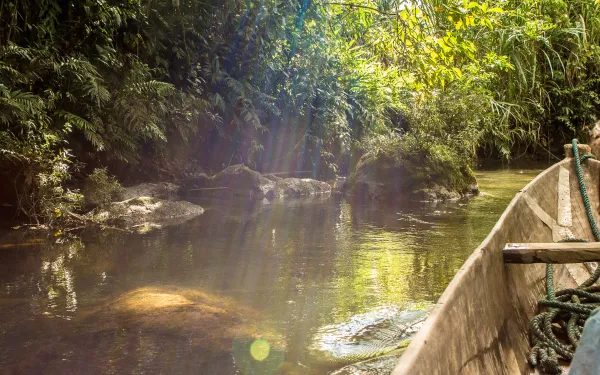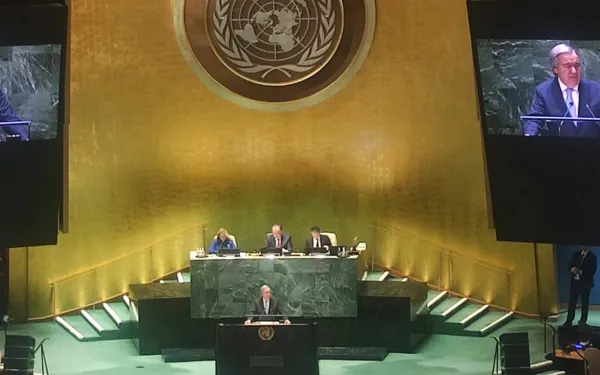
What happened at the World Water Conference 2023?
By Yeny Rodríguez, Claudia Velarde and Rosa Peña* The UN Water Conference 2023, held March 22-24 in New York, was organized in response to the need to evaluate the fulfillment of global goals and targets in the areas of water and sanitation, about which there is growing concern. AIDA participated in the Conference to position key messages from Latin America and the Caribbean that should be made visible and included in the discussions and that should now be part of the fulfillment of the Water Action Agenda, which was adopted at the global meeting. What follows is our take on the important event and what we hope will come of it in the future. The Advances An agenda for urgent action The Conference concluded with the adoption of the Water Action Agenda, a plan that included 689 commitments—collected from the official sessions and side events—as well as pledges of $300 billion dollars in financing to drive them forward. The commitments cover capacity building, data and monitoring systems, and improving infrastructure resilience, among other actions. The online platform hosting the Agenda will remain open for submissions. Overall, the Conference served as a global call to protect water and the water cycle as a global common good and a fundamental human right. The international community was also alerted to the need for urgent action to address the water crisis—which translates into shortages and droughts, contamination of water sources, degradation of strategic ecosystems and serious governance problems— which today particularly affects the world's indigenous peoples, Afro-descendants and rural communities. It’s important that the commitments made be incorporated into climate discussions, since the water crisis and the climate crisis are closely interconnected. The drive for fair water governance Innovative initiatives for the protection of ecosystems and for fair water governance were launched at the Conference. Water governance involves decision-making processes, as well as institutions and power relations that influence the flow, quality, use, availability and distribution of water (fresh or salt, surface or subsurface). One such initiative was the Transformative Water Pact, built collectively by a diverse group of more than 40 civil society organizations and academia, including AIDA. The Dutch NGO Both ENDS and the International Water Knowledge Institute (IHE-Delft) spearheaded the initiative. The Pact proposes an alternative vision of water management based on the principles of environmental justice, equity and care. It proposes frameworks for action and strategic priorities to guide decision-making. It is a response to the continued overexploitation and degradation of freshwater ecosystems, human rights violations, and the extreme power imbalances that characterize current water management around the world. The Inspiring The role of women and indigenous peoples The presence of civil society at the Conference was mostly female. This both revealed the intersectional nature of the inequalities that women experience on a daily basis in their struggles for water, and vindicated their important role in water management. Women possess and transmit traditional ecological knowledge for the care of water, lead struggles in its defense, and are more frequently exposed to risks and threats to their lives. Yet their voice is often disregarded, and they are not often invited to participate in environmental decision-making spaces. Similarly, important indigenous leaders from across Latin America and the world attended the Conference. This showed how much we have to learn from indigenous ancestral practices for the care of water, as well as the decisive role that indigenous and traditional communities play in the care of 80 percent of the planet's biodiversity and in the mitigation of the climate and water crises. The parallel events in which these actors participated made the world reconsider and reevaluate what the West has understood from science, making it clear that the ancestral knowledge system of indigenous peoples is specialized and sophisticated, and therefore must be prioritized in any policy of integrated and fair water management. The unity of civil society for water justice Although largely absent from official UN spaces, civil society had a strong and inspiring presence at the Conference. Organizations, activists and water advocates from around the world held important conversations and called for effective participation, with their own voice, in these spaces. "When you ask me about this conference, I can tell you that I am optimistic, not because of the results, but because of the spirit that was born thanks to you," said Pedro Arrojo-Agudo, UN Special Rapporteur on the human rights to safe drinking water and sanitation, to a room full of civil society members and water defenders. "The UN needs the energy and legitimacy that water defenders' movements are offering and I am sure it will come." Representatives of more than 500 organizations, indigenous peoples, social movements and water defenders presented the Water Justice Manifesto with the intention of amplifying the voices of those who are not being heard and insisting that fundamental issues be placed at the center of water policies at the global, regional, national and subnational levels. Although not scheduled, movement leaders were able to read the manifesto in an official space at the Conference, which allowed for its entry into the central dialogue. What was Missing Guarantees for the effective fulfillment of commitments Although the Conference was a unique and relevant opportunity to place water-related issues on the world agenda, there is still a long way to go toward achieving effective commitments from nations, as those included in the Water Action Agenda are not legally binding. In the near future, we need these commitments to be binding, and for there to be a follow-up mechanism, indicators to measure the progress made by States in fulfilling the Agenda and – why not? – a specialized international instrument for the protection of the human right to water and sanitation. A more open and inclusive participation in the dialogue Practically all sectors echoed the need for greater participation in official UN spaces and in future conferences. This requires a broad understanding of the water crisis and the intersectional movement needed to address it justly. It implies thinking about participation based on the inclusion of stakeholders on an equal footing for dialogue and, at the same time, recognizing the individuals, communities and peoples who hold the right to water, whose voice must be taken into account in a differential manner given their interdependent relationship with water. Recognition of the valuable role of water defenders In Latin America, defending rivers, lagoons, streams, aquifers and, in general, the right to water is a risky activity. Water is a natural resource in dispute. Those who work to safeguard it for human consumption or for its recognition as an enforceable right have for years been subjected to stigmatization, threats, persecution and attacks on their lives and integrity. The water agenda must recognize the important role of water defenders, as well as promote the creation of instruments and mechanisms aimed at providing greater guarantees to those who dedicate their lives to this work. The promotion of horizontal alliances and articulations for the protection of water The protection of water is a task of all States with differentiated responsibilities and capacities. Its effective achievement requires initiatives and processes of international cooperation, alliances and articulations among States based on mutual respect and recognition. This will make it possible to reach consensual paths and prevent the repetition of dynamics of imposition. Furthermore, these articulations must recognize and respect the normative frameworks of indigenous peoples so that, based on their uses and customs, they can continue to play their fundamental role in the protection and management of water. What’s Next It’s expected that the commitments contained in the Water Action Agenda will be reviewed and endorsed internally by Latin American governments and promoted at the international level at upcoming summits and high-level meetings. It’s also expected that the importance of protecting the human right to water and sanitation will be a key theme in all international forums where progress on the Sustainable Development Goals (SDGs) is discussed, such as the SDG Summit scheduled for September, and especially at the 28th United Nations Climate Change Conference (COP28). AIDA will continue to work to protect key ecosystems, prevent industrial pressure on water, advocate for the participation of local communities in decision-making about their water sources, and defend the human right to water. *Yeny Rodríguez is an attorney with AIDA's Ecosystems Program, Claudia Velarde is Area Coordinator of Ecosystems Program y Rosa Peña is an attorney with Human Rights and Environment Program.
Read more
